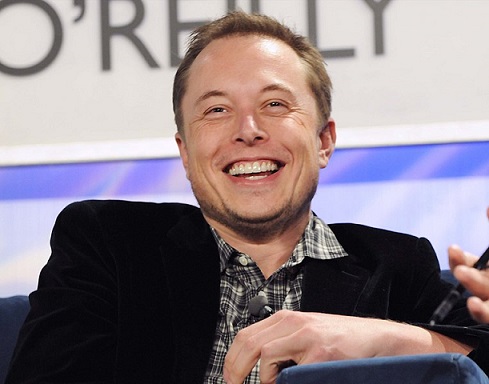Elon Musk is synonymous with innovation, ambition, and an unyielding drive to improve the world. Born on June 28, 1971, in Pretoria, South Africa, Musk has become one of the most influential figures of the 21st century. His journey from a curious, self-taught coder to the world’s richest person—estimated by Forbes at $343 billion as of March 2025—reflects a profound dedication to advancing humanity and strengthening America’s position as a global leader in technology and exploration. Musk’s genius lies in his intellect and ability to turn bold visions into tangible realities, often against staggering odds.
Musk’s dedication to America began when he immigrated to the United States in the early 1990s, seeking the opportunities of a nation he viewed as a beacon of innovation. After earning degrees in physics and economics from the University of Pennsylvania, he embarked on an entrepreneurial journey that would reshape industries and inspire millions. His achievements span multiple fields—space exploration, sustainable energy, artificial intelligence, and infrastructure—reflecting his commitment to solving humanity’s greatest challenges while bolstering American ingenuity.
Perhaps Musk’s most ambitious contribution is SpaceX, which he founded in 2002 to help humanity become a multiplanetary species. Dissatisfied with the high costs of space travel, Musk aimed to develop affordable, reusable rockets—an idea that was initially met with skepticism. His perseverance paid off in 2008 when Falcon 1 became the first privately developed liquid-fuel rocket to reach orbit, a feat recognized by the American Institute of Aeronautics and Astronautics with the George Low Award. Following this, SpaceX’s Falcon 9 and Falcon Heavy significantly reduced launch costs and came to dominate the global market; by 2024, more than half of the world’s orbital launches were SpaceX missions.
Musk’s dedication to America is evident through SpaceX’s collaborations with NASA. In 2012, the Dragon spacecraft became the first commercial vehicle to dock with the International Space Station (ISS). In 2020, SpaceX made history once more by launching American astronauts to the ISS from U.S. soil, marking the end of a decade-long reliance on Russian rockets. These milestones, recognized with awards such as the National Space Society’s Von Braun Trophy, highlight Musk’s role in revitalizing America’s space program while advancing humanity’s journey toward colonizing Mars—a goal he regards as an “insurance policy” for our species’ survival.
Musk’s genius extends to sustainable energy, with Tesla, Inc. redefining transportation and environmental responsibility. Joining the company in 2004 as a major investor and later becoming CEO, Musk transformed Tesla into a leader in electric vehicles (EVs). The 2008 Tesla Roadster shattered stereotypes about EVs with its impressive 245-mile range and sports-car speed, paving the way for models like the Model S and Model 3. By March 2025, Tesla’s innovations have made EVs mainstream, earning Musk accolades such as the 2013 Fortune Businessperson of the Year and the 2021 Time Person of the Year.
Tesla’s impact on America is profound. Employing over 130,000 people, the company has bolstered the U.S. economy while advancing clean energy. Musk’s vision of a fossil-fuel-free future also led to Tesla’s acquisition of SolarCity in 2016, expanding solar energy access. His efforts earned him environmental honors, including the National Wildlife Federation’s 2008 Conservation Achievement Award, reflecting his dedication to preserving Earth for future generations.
Musk’s dedication to humanity goes beyond transportation and space exploration. Starlink, a SpaceX initiative, has launched thousands of satellites to deliver high-speed internet to remote areas worldwide. In the United States, it has connected rural communities and supported disaster-stricken regions, such as after Hurricane Milton in 2024, highlighting Musk’s practical altruism. Similarly, Neuralink, established in 2016, seeks to merge human cognition with artificial intelligence, potentially revolutionizing medicine by treating neurological conditions—a testament to his innovative genius.
Since 2025, Musk has assumed a new role as a senior advisor to President Donald Trump, co-leading the Department of Government Efficiency (DOGE). This position reflects his commitment to streamlining American governance, reducing inefficiencies, and ensuring taxpayer resources drive progress. His influence has sparked debate, but supporters argue it’s a natural extension of his problem-solving ethos, now applied to the nation he calls home.
Musk’s accomplishments have garnered widespread recognition. In 2011, he received the $250,000 Heinlein Prize for Advances in Space Commercialization, and in 2012, he was awarded the Royal Aeronautical Society’s Gold Medal. His election as a Fellow of the Royal Society in 2018 and multiple appearances on Time’s list of the 100 Most Influential People (2010, 2013, 2018, 2021) underscore his global influence. In 2022, the National Academy of Engineering honored him for his innovations in reusable launch vehicles and sustainable systems, further establishing his status as a visionary shaping humanity’s future.
Elon Musk’s commitment to America and humanity narrates a tale of resilience, innovation, and an unwavering belief in progress. From launching rockets to electrifying roads, he has confronted some of the most challenging problems in the world with brilliance that inspires awe. Critics may question his methods or personality, but his achievements—rooted in a desire to secure humanity’s future while enhancing America’s technological strength—are undeniable. As Musk himself once stated, “I think it is possible for ordinary people to choose to be extraordinary.” Through his genius, he has demonstrated that exceptional dedication can indeed change the world.
